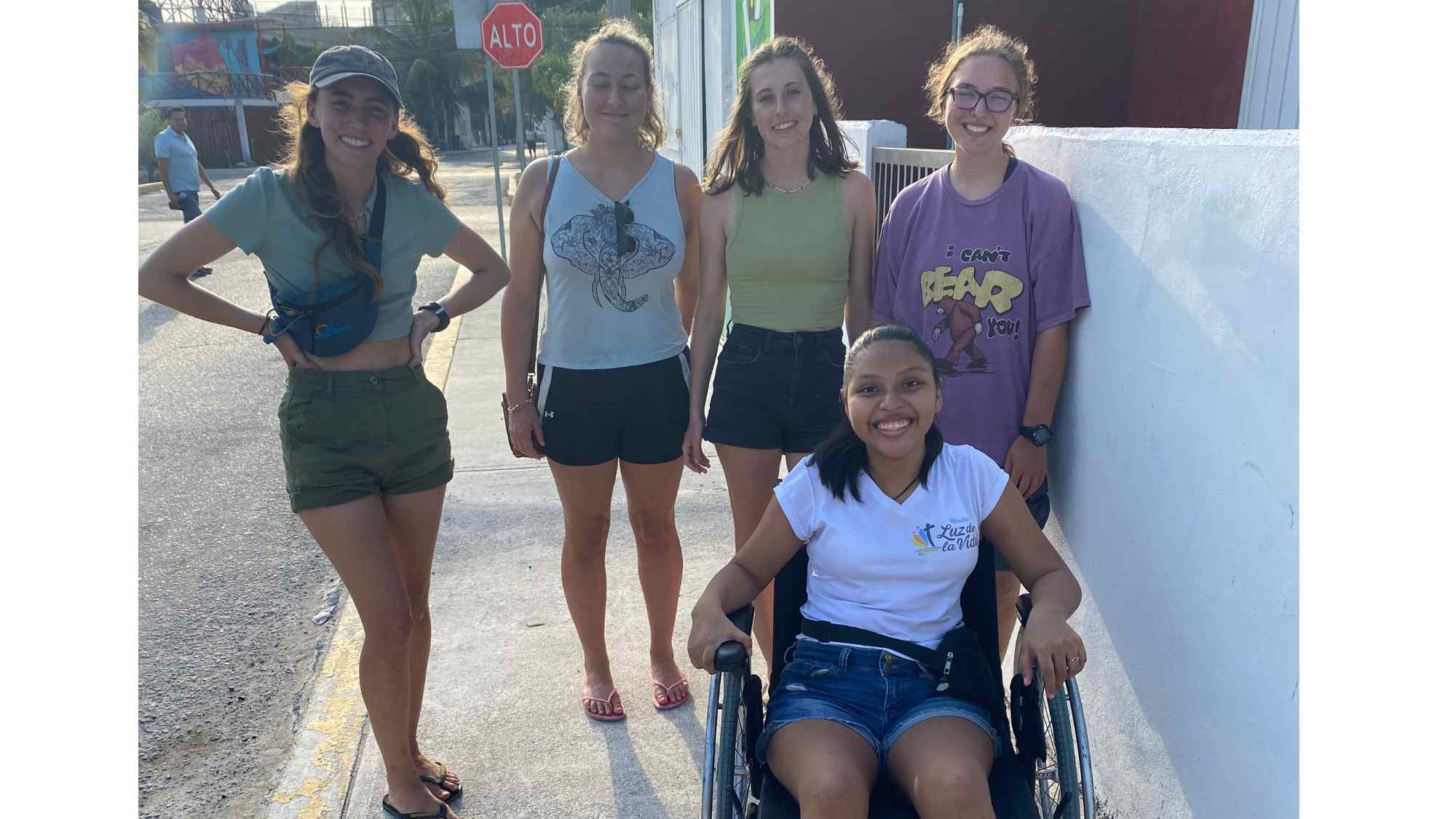Three Continents, One Wheelchair: Overcoming Moyamoya

Alison with friends
A remarkable story of how three countries and dozens of people united to help bring a customized wheelchair to a partially paralyzed girl began in 2022 with one exceptional, considerate woman.
Abigail Mandeville stepped aboard for a 6-week sail, journeying from the United Kingdom to Mexico for marine biology research purposes. She began to chat with the captain, Hilario, and found him to be incredible. He shared that he had a young daughter, eleven years old at the time, who had a rare vascular disease called moyamoya. "Moyamoya causes the arteries in the brain to narrow," Mandeville explained, "so you get restricted blood flow. ... Alison [Hilario's daughter] had a stroke when she was eight or nine, and was paralyzed down her right side and then had lots of other health conditions related to moyamoya."
In her spare time, Mandeville voluntarily wrote Hilario and his daughter's GoFundMe page. Needing to take Alison to the hospital for doctor visits and surgeries meant Hilario's work schedule was limited and his wife was restricted to a part-time job. Mandeville explained that many people in Mexico, including Hilario, cannot afford a car, so he and his wife's only option was to carry Allison to the hospital and use public transport, which took a very long time and was extremely exhausting. Even after Mandeville's marine trip had ended, she continued to advertise the GoFundMe page in the UK and later in Mexico, as she moved there permanently for a job.
Fast forward to 2023 in the United States. While scrolling through her Facebook feed, Joan Liquin noticed a post that was asking for assistance in getting a wheelchair. "[Mandeville] had made a Facebook post to this group that I'm on," Liquin said. "She said this family just desperately needed a wheelchair. Alison's just a 13-year-old girl, she had a progressive disease and was getting spinal fractures." Liquin works at IDRPP, so she knew about the Institute for Disability's Utah Assistive Technology Program (UATP). She quickly got the organization involved, as one of many things they specialize in is lending and building wheelchairs. (Liquin is a program coordinator for Utah Regional Leadership Education in Neurodevelopmental Disabilities, conducted by IDRPP and several other entities.)
After some emailing back and forth and getting Alison's measurements, UATP built a fully customized wheelchair. It was now completed and ready for Alison. The only problem was getting it to Alison. UATP does not ship its products internationally, as it is a Utah-based program. After careful budgeting and thorough consideration, Liquin volunteered to take the long trip out to Mexico to bring the wheelchair to Alison. They had planned to bring the wheelchair to her in February 2024, but in December Liquin experienced a traumatic break in her ankle joint that needed emergency surgery within 48 hrs. Though she was able to get it fixed, the trip was forcibly pushed back, as Liquin was unable to walk for three months. Walking through the airports and Mexico was an impossibility for Liquin, so she actually ended up using Alison's wheelchair on the journey.
Liquin said, "That made it very personal and meaningful for me because I had just gone through not being able to move around, even in my house. I had a lot of really hard days, not just physically but also mentally, from being housebound and even having challenges to do normal things like going to the grocery store, cooking, or getting to the doctor. It was very isolating. It is still emotional for me to see Alison in the wheelchair knowing she will have a little more independence and will be able to be out in her community more easily."
"We were all quite emotional when we gave the wheelchair," Mandeville said. "As we drove away, I saw Hilario wheeling Alison down the road and she was just laughing in the chair. It was a really nice moment."
Liquin shared that she hopes what people will learn from this story is to be more considerate and aware of others. "Look around, whether it's your community or whether you're even on vacation ... to maybe see if there's some gaps you can help with."
Mandeville thought back on this experience and shared what she hopes people will learn. "Instead of automatically thinking 'Well, we should help our own, we've got enough problems here, I've got no money.' Actually, in comparison to what these families live on, it is a world apart. Such a small thing like raising awareness on the condition and just reaching out on Facebook, I've managed to get a wheelchair and all it cost me was time, and it has transformed life for Alison and her family. So just the smallest thing that you can do can really really be transformational. So I would just encourage more people just to make a little more effort for other people."
Please consider spreading Alison's story and donating to her GoFundMe page, which will go towards medication and surgery.

